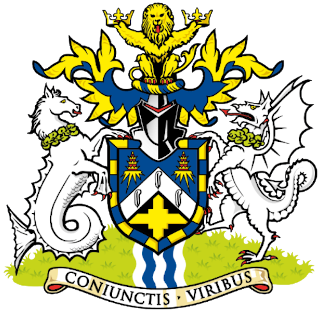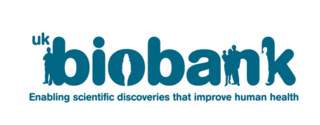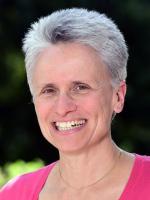Related Research Articles

Bangladesh, officially the People's Republic of Bangladesh, is a country in South Asia. It is the eighth most populous country in the world and is among the most densely populated countries, with a population of around 170 million in an area of 148,460 square kilometres (57,320 sq mi). Bangladesh shares land borders with India to the west, north, and east, and Myanmar to the southeast; to the south it has a coastline along the Bay of Bengal. It is narrowly separated from Bhutan and Nepal by the Siliguri Corridor; and from China by the Indian state of Sikkim in the north. Dhaka, the capital and largest city, is the nation's political, financial and cultural centre. Chittagong, the second-largest city, is the busiest port on the Bay of Bengal. The official language is Bengali.

Central Asia is a subregion of Asia that stretches from the Caspian Sea in the southwest and Eastern Europe in the northwest to Western China and Mongolia in the east, and from Afghanistan and Iran in the south to Russia in the north. It includes the former Soviet republics of Kazakhstan, Kyrgyzstan, Tajikistan, Turkmenistan, and Uzbekistan. Central Asian nations are colloquially referred to as the "-stans" as the countries all have names ending with the Persian suffix "-stan", meaning "land of".
Race is a categorization of humans based on shared physical or social qualities into groups generally viewed as distinct within a given society. The term came into common usage during the 16th century, when it was used to refer to groups of various kinds, including those characterized by close kinship relations. By the 17th century, the term began to refer to physical (phenotypical) traits, and then later to national affiliations. Modern science regards race as a social construct, an identity which is assigned based on rules made by society. While partly based on physical similarities within groups, race does not have an inherent physical or biological meaning. The concept of race is foundational to racism, the belief that humans can be divided based on the superiority of one race over another.

Ashkenazi Jews, also known as Ashkenazic Jews or Ashkenazim, constitute a Jewish diaspora population that emerged in the Holy Roman Empire around the end of the first millennium CE. They traditionally spoke Yiddish and largely migrated towards northern and eastern Europe during the late Middle Ages due to persecution. Hebrew was primarily used as a literary and sacred language until its 20th-century revival as a common language in Israel.

Queen Mary University of London is a public research university in Mile End, East London, England. It is a member institution of the federal University of London.

Mexicans are the citizens and nationals of the United Mexican States.

UK Biobank is a large long-term biobank study in the United Kingdom (UK) which is investigating the respective contributions of genetic predisposition and environmental exposure to the development of disease. It began in 2006.

British Asians are British citizens of Asian descent. They constitute a significant and growing minority of the people living in the United Kingdom, with 6.9% of the population identifying as Asian/Asian British in the 2011 United Kingdom census. This represented a national demographic increase from a 4.4% share of UK population in 2001.
Genetics and archaeogenetics of South Asia is the study of the genetics and archaeogenetics of the ethnic groups of South Asia. It aims at uncovering these groups' genetic histories. The geographic position of the Indian subcontinent makes its biodiversity important for the study of the early dispersal of anatomically modern humans across Asia.
South Asian ethnic groups are an ethnolinguistic grouping of the diverse populations of South Asia, including the nations of Bangladesh, Bhutan, India, Maldives, Nepal, Pakistan, and Sri Lanka. While Afghanistan is variously considered to be a part of both Central Asia and South Asia, Afghans are generally not included among South Asians.

Human genetic variation is the genetic differences in and among populations. There may be multiple variants of any given gene in the human population (alleles), a situation called polymorphism.

The Human Genome Project (HGP) was an international scientific research project with the goal of determining the base pairs that make up human DNA, and of identifying, mapping and sequencing all of the genes of the human genome from both a physical and a functional standpoint. It started in 1990 and was completed in 2003. It remains the world's largest collaborative biological project. Planning for the project started after it was adopted in 1984 by the US government, and it officially launched in 1990. It was declared complete on April 14, 2003, and included about 92% of the genome. Level "complete genome" was achieved in May 2021, with a remaining only 0.3% bases covered by potential issues. The final gapless assembly was finished in January 2022.

British Bangladeshis are people of Bangladeshi origin who have attained citizenship in the United Kingdom, through immigration and historical naturalisation. The term can also refer to their descendants. Bengali Muslims have prominently been migrating to the UK since the 1940s. Migration reached its peak during the 1970s, with most originating from the Sylhet Division. The largest concentration live in east London boroughs, such as Tower Hamlets. This large diaspora in London leads people in Sylhet to refer to British Bangladeshis as Londoni.
Asian people are the people of Asia. The term may also refer to their descendants.

London, the capital of England and the United Kingdom, has become one of the most ethnically diverse and multicultural cities in the world.

Genomics England is a British company set up and owned by the United Kingdom Department of Health and Social Care to run the 100,000 Genomes Project. The project aimed in 2014 to sequence 100,000 genomes from NHS patients with a rare disease and their families, and patients with cancer. An infectious disease strand is being led by Public Health England.
The 100,000 Genomes Project is a now-completed UK Government project managed by Genomics England that is sequencing whole genomes from National Health Service patients. The project is focusing on rare diseases, some common types of cancer, and infectious diseases. Participants give consent for their genome data to be linked to information about their medical condition and health records. The medical and genomic data is shared with researchers to improve knowledge of the causes, treatment, and care of diseases.
Eran Elhaik is an Israeli-American geneticist and bioinformatician, an associate professor of bioinformatics at Lund University in Sweden and Chief of Science Officer at an ancestry testing company called Ancient DNA Origins owned by Enkigen Genetics Limited, registered in Ireland. His research uses computational, statistical, epidemiological and mathematical approaches to fields such as complex disorders, population genetics, personalised medicine, molecular evolution, genomics, paleogenomics and epigenetics.

In archaeogenetics, the term Western Hunter-Gatherer (WHG), West European Hunter-Gatherer, Western European Hunter-Gatherer, Villabruna cluster, or Oberkassel cluster is the name given to a distinct ancestral component of modern Europeans, representing descent from a population of Mesolithic hunter-gatherers who scattered over Western, Southern and Central Europe, from the British Isles in the west to the Carpathians in the east, following the retreat of the ice sheet of the Last Glacial Maximum.

Stephanie J. London is an American epidemiologist and physician-scientist specializing in environmental health, respiratory diseases, and genetic susceptibility. She is the deputy chief of the epidemiology branch at the National Institute of Environmental Health Sciences.
References
- ↑ "How 500,000 Britons are critical to assessing global disease risk". Financial Times. 22 August 2018. Retrieved 1 October 2018.
- ↑ "Queen Mary hosts tackling placed-based inequalities panel with local council representatives". Queen Mary University of London. 17 October 2022. Retrieved 14 November 2022.
- ↑ "Transferability of genetic loci and polygenic scores for cardiometabolic traits in British Pakistani and Bangladeshi individuals". Nature. 9 August 2022. Retrieved 14 November 2022.